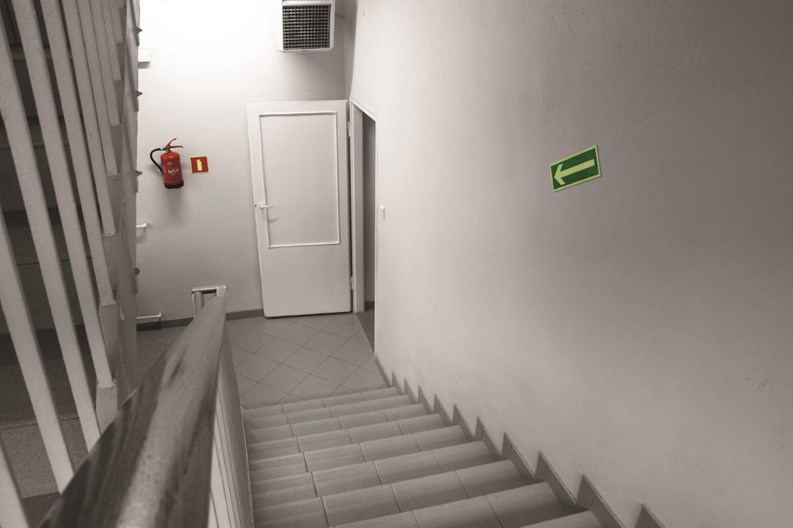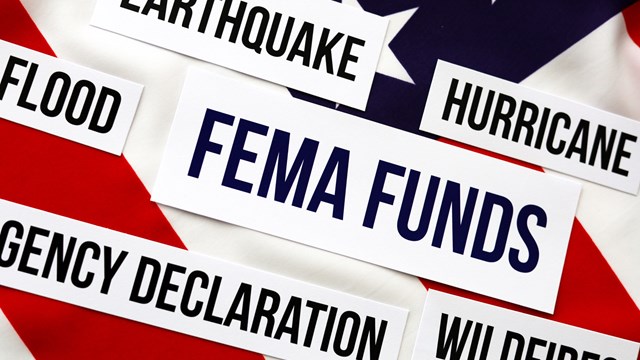Just this past September, a tornado hit Park Slope, Central Brooklyn and parts of Queens in New York City, doing substantial damage in a few short minutes. This same squall also spawned tornadoes in parts of Ocean County and Perth Amboy.
New Jerseyans also remember the wrath of a severe nor’easter that did significant damage this past spring. Several people died, a state of emergency was declared, and thousands of people were evacuated and spent time in makeshift shelters. Flash floods like those that crippled the Garden State in March 2010 are just the most recent examples of why condo and HOA board members, managers and unit owners have to think seriously about emergency planning.
At one time, when people talked about emergency planning for multifamily buildings, they mainly meant fires, or very temporary power outages of a few hours at maximum. Then, 9/11 made everyone think of the possibility of man-made catastrophe. The blackout that hit New York City and parts of New Jersey in 2003 added lengthy power outages to everyone’s worries. Add the possibility of hurricanes, floods, snowstorms and more, and the result is enough to scare almost anyone.
Help and resources are readily available, however, and disaster or emergency planning is on the front burner in many of New Jersey’s 566 municipalities. It’s just a matter of learning what to do.
Good People
Safety and management pros agree that within your building or development, you have to have people you can rely on.
“The most important thing,” says Meredith Appy, president of the Home Safety Council based in Washington, D.C., “is to show a lot of leadership. Management often does not take this seriously enough. They don't talk about it at the residents’ meetings, they don't schedule actual drills for people to practice their emergency response. So it really takes leadership from the top, and a lot of opportunity to practice. That's what saves lives in an emergency situation.”
Plans should be thought out and drawn up, says Rob Britigan, an experienced Michigan property manager who is active in the Institute of Real Estate Management (IREM).
“The property manager should prepare an 'emergency preparedness' plan that contemplates emergency policies and procedures, then present the plan for the board to review and approve,” says Britigan. Once it is approved, the plan could be incorporated into a resident handbook, he says.
Ed Peloquin, emergency preparedness coordinator for the New Jersey Association of Homes and Services for the Aging in Princeton says that it might be wise to enlist the help of qualified individuals in your community. “A manager and maintenance person should identify residents with previous experience and/or training in fire service, public health or police work or volunteer service with the Red Cross and/or The Salvation Army, and explore with them their willingness to [work with] the community in the event of a disaster,” Peloquin says. Invite the community to an awareness meeting and let them know why they must prepare, he says. Additionally, a local fire official, Red Cross staff or an expert in housing preparedness can also be invited to make a presentation as well as property, casualty insurance and remediation firms, he continued.
Mike Beirne, executive vice president of Kamson Corporation in Englewood Cliffs and a regional vice president of the National Apartment Association, adds that managers and other building administrators and staff should be conversant in local fire codes. “Some towns, like Newark, have ordinances about what has to be in the emergency plan—you want to check with your particular town,” Beirne says, adding that there are consultants, who can help boards with this in any jurisdiction.
What about some of the less-common problems or things that haven’t even happened yet, such as bioterrorism? Should your building put any effort into planning for those? Britigan, who works as vice president of operations for a Michigan business park, says, “Good management should anticipate and plan for as many possible as reasonable. It is virtually impossible to plan for everything, but nothing is esoteric after it happens. We view our plans as malleable, and they are updated as new threats are identified.”
Knowing Your Roles
In general, management, board members and building staff should all know what their roles are in case of an emergency. The management company can train board members as well as advise the board about its duties.
“The board members have to realize what might happen,” says Beirne. “Many say, `It’s not going to happen to my building,’ but I’ve been in this business for 25 years and I’ve seen some of the craziest things. Most times it’s the other building—but what if it’s yours?”
Can boards or managers be held liable in the results of an emergency if the plan isn’t carried out correctly, and disaster results? Britigan recommends that boards obtain directors’ and officers’ liability insurance, and that management carry errors and omissions coverage in addition to their general liability policy, as well as being named as additional insured on the property’s general liability policy.
Outside of a formal emergency plan, residents also have to do their job, says Peloquin. “The basic responsibility is on the resident,” he says. “Even if there is a contract, it seldom covers personal protection. Community and facility protection puts the focus directly on the board and management be they employees or contract services. While it is difficult to assign and prove responsibility for death and damage in a disaster, the failure to prepare is being frequently raised regarding liability claims.”
Resident responsibility also means installing and maintaining proper detection and early warning devices. In most municipalities in New Jersey, homes are required by law to have both a working smoke detector and a working carbon-monoxide detector. Some people may have the temptation to take the battery out of their smoke detectors because they tend to go off whenever there’s a little too much smoke coming from the oven or frying pan in the kitchen. But it’s not a good idea—it could cost lives.
“The best fires are the ones that did not happen,” agrees Appy. “You've got to make sure that all your smoke alarms work. And here is something that I'm hoping building managers know. New research is showing that smoke alarms only last about eight to 10 years. So, if you have not replaced your smoke alarm system in the last 10 years, it's time to do that.”
And preparation is great, but prevention in the first place is optimal, adds Appy. “The building manager can help prevent fires by doing good educational work with the people who live in the building. The Home Safety Council has materials online that are free and downloadable for anyone to utilize.”
Chain of Communications
So, let’s say you now have the basics of an emergency plan. What’s the next step?
According to the professionals, the answer is—take as many steps as possible. Discuss the emergency plan at your board meeting, put notices under doors, include it in email messages and regular monthly bulletins, post it in common areas.
And within your organization, everyone should know what their role is in the plan—who is in charge of what floor, who is in charge of knocking on doors, whose needs to notify fire and police authorities.
Beirne advises managers to get to know people in the local firehouse and police precinct and to be sure that those people have the manager's phone numbers. You also have to know how to talk to these officials. Explain exactly what happened in an emergency, but don’t speculate on what caused the problem—that’s the job of the fire marshals and other authorities. A smaller building won’t have the type of staff that a large building or development does, but it still typically has an on-site representative of management. And that person should get to know the people in the building and come to board meetings to establish the chain of communications.
Special Challenges
In the event of emergencies in multifamily buildings, the elderly, the chronically ill – especially those who use equipment such as respirators – and even families with young children can pose special problems.
For that reason, you need to know where these people live in your building, or development and have their contact information available. “Staff members should be assigned responsibilities to be aware of where these people are,” says Beirne. “The staff may not be capable of helping them, but staff has to be responsible when emergency service providers show up, to tell them what they need to know.”
“Your evacuation protocol must recognize functional limitations,” adds Peloquin. “This means earlier warning, assistance from other residents, pre-positioning any special equipment and staging points during the evacuation, and using 'defend-in-place' methods to stay out of harm's way. The building should be modified to ADA standards if it doesn't already meet them. In New Jersey, the Association of Homes and Services for the Aging has emergency plan templates that are specific to condo type facilities.”
In many communities, if you try to get the word out to your residents, you may be up against a language barrier. Obviously it’s easiest, says Beirne, if you’re in a building where one foreign-language group predominates. In that case, you can put out target literature in their language.
But in some parts of the Northern New Jersey, you could have people speaking a half-dozen different languages in one building or development. In that case, says Beirne, make sure that the literature has lots of diagrams and illustrations and is “very pictorial.”
Just as buildings have special-needs residents, each building has its own idiosyncracies, says Britigan. “It is important for people to ask questions and become an expert on that particular building. This can be done by interviewing staff, vendors, residents, and reviewing building/fire safety inspection report and `as build’ plans.”
“The most common vulnerability is the lack of sufficient emergency power to operate lights, heat and cooling systems,” says Peloquin. “This is usually because no electrical generator exists or the fuel supply in not sufficient to last at least 72 hours. The Board must conduct a Hazards Vulnerability Analysis and then address the capability gaps in the structure and areas of weakness such as too much exposed glass or it is to easy to access electrical and gas utilities.”
To Sum Up
To sum up, Beirne says, here are some of the main things a condo or co-op board or manager should take into account when making a building’s emergency plan:
• Make sure you regularly inspect your emergency infrastructure, such as smoke detectors.
• Make sure your staff and residents know where the emergency exit areas are—even if they are clearly marked.
• Make sure these areas are truly open and clear, not blocked.
• Make sure you have a good, current set of emergency phone numbers.
• Make sure your building has regularly scheduled inspections.
“The goal for a board and management,” Britigan emphasizes, “is to anticipate problems and prevent emergencies from happening. If they do happen, then the most important factors are the safety of the occupants, security the building and mitigating further loss.”
Raanan Geberer is a freelance writer and editor living in New York City.







Leave a Comment